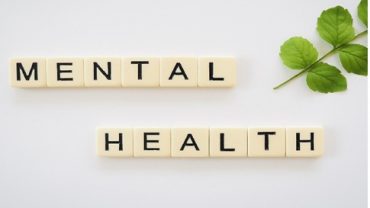Coronavirus, Novel Coronavirus, or COVID-19, no matter what name you know it as, it is affecting us all and changing the way of life we have become use to, but most importantly it is impacting the mental well being of people across the globe unlike anything else.
According to a study by the Center for Addiction and Mental Health, Woman, parents, and Young Adults are being hit the hardest by depression and anxiety as a result of COVID-19, but that is not to say that everyone is not being severely impacted by this virus.
Lack of Social Life
Although evidence supports that social distancing has helped us to manage the massive influx of COVID-19 cases, the lack of socializing in people’s lives is taking a new toll which may be just as bad for us.
Experts are warning that losing everyday social connections comes with psychological costs. And these costs will only be higher the longer this keeps up. Most places have banned all nonessential activities and have asked residents to stay home. Across the globe, offices, schools, and businesses have gone entirely online. On the other hand, many stores have had to temporarily, some of which will be permanently, close their doors due to epidemic. These measures have shown that they can stop, or at least slow, the spread of COVID-19.
Research on the psychological impacts of social distancing are very limited, but there has been enough to show it is not great for us. Researchers evaluated 24 studies looking at the psychological outcomes of people who were quarantined during outbreaks of SARS, H1N1 flu, Ebola, and other infectious diseases.
Most of the individuals who were quarantined experienced both short-term and long-term mental health problems, including stress, insomnia, emotional exhaustion, and substance abuse. For instance, one study compared quarantined versus non-quarantined individuals during an equine influenza outbreak. Of 2,760 quarantined people, 34 percent, or 938 individuals, reported high levels of psychological distress.
The potential for social distancing to become a long-term event is one of the most worrisome parts of COVID-19 because the longer these measures are in place, the more likely it is that people develop mental health problems such as depression, anxiety, or suicidal thoughts. People are being literally walled off from one another and it could cause even more impact from events that will follow COVID-19 such as recessions, unemployment, and social unrest.
What can be done?
With all the fear surrounding both the virus and the world’s response to the virus, a lot of us worry that we will not recover from this epidemic, but that is simply not true because humanity has faced many viruses throughout history and has managed to overcome all of them.
Lucky for us, government agencies across the world are forming to offer virtual mental health support for everyone from Healthcare workers to Youth to Parents to Seniors, and everything in between so if you are struggling please search online for Mental Health support in your country for COVID-19 and you will find free resources.
Some businesses and schools, such as M College of Canada (https://collegem.ca/) a private school in Lasalle, Quebec which offers classes from Business Management to Early Childhood Education, have stepped up to the plate to offer support from private, virtual nurses that will help people with mental and physical illnesses and diagnosis.
This epidemic is affecting all of us, but you are not in it alone because the world is full of people who care and know that this is extremely difficult for everyone so never think you must face it alone. If you are struggling right now, reach out to someone you trust or search through the countless online resources that offer support to people affected by COVID-19. Above all else, listen to the restrictions and stay safe because nothing is more important than your well being.












